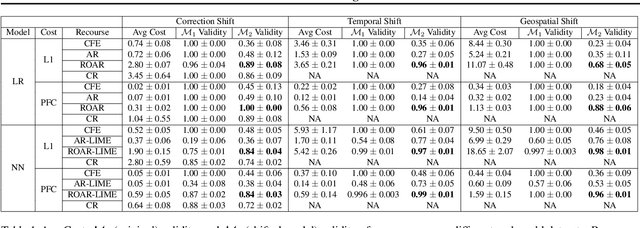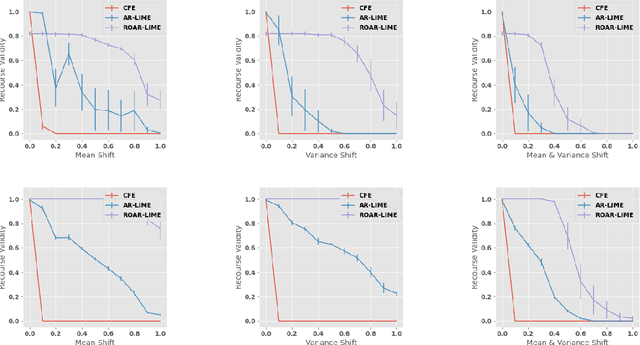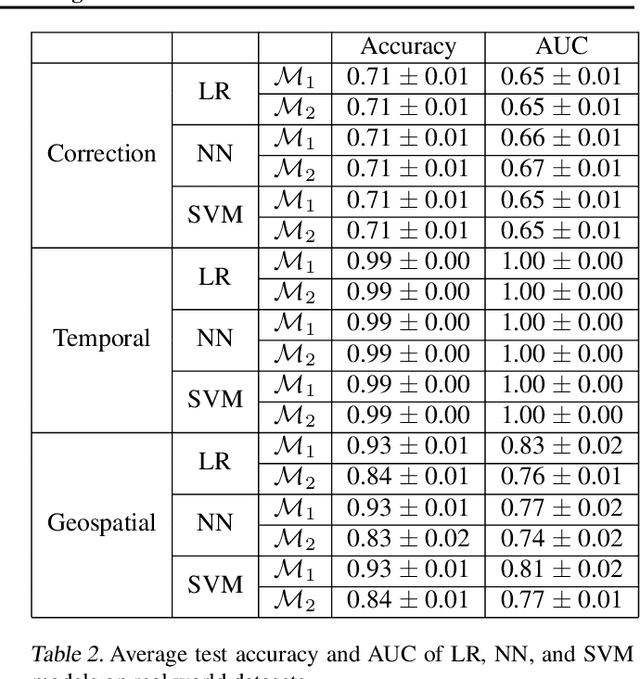Towards Robust and Reliable Algorithmic Recourse
Paper and Code
Feb 26, 2021



As predictive models are increasingly being deployed in high-stakes decision making (e.g., loan approvals), there has been growing interest in post hoc techniques which provide recourse to affected individuals. These techniques generate recourses under the assumption that the underlying predictive model does not change. However, in practice, models are often regularly updated for a variety of reasons (e.g., dataset shifts), thereby rendering previously prescribed recourses ineffective. To address this problem, we propose a novel framework, RObust Algorithmic Recourse (ROAR), that leverages adversarial training for finding recourses that are robust to model shifts. To the best of our knowledge, this work proposes the first solution to this critical problem. We also carry out detailed theoretical analysis which underscores the importance of constructing recourses that are robust to model shifts: 1) we derive a lower bound on the probability of invalidation of recourses generated by existing approaches which are not robust to model shifts. 2) we prove that the additional cost incurred due to the robust recourses output by our framework is bounded. Experimental evaluation on multiple synthetic and real-world datasets demonstrates the efficacy of the proposed framework and supports our theoretical findings.
 Add to Chrome
Add to Chrome Add to Firefox
Add to Firefox Add to Edge
Add to Edge